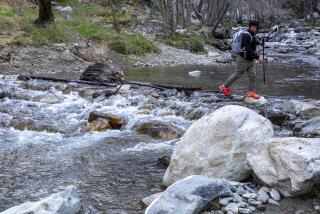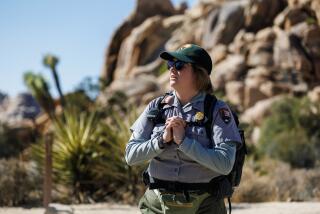Lightning’s a wonder to behold in the Grand Canyon, but it can be deadly
During the summer monsoon season at Grand Canyon National Park, the electrical display can be better than Fourth of July fireworks. But lightning is dangerous. A single bolt carries up to 2 billion volts of electricity and heats the surrounding air to 20,000 degrees.
Lightning causes most of the fires on the North Rim and in neighboring Kaibab National Forest, including the recent Roosevelt fire, which forced the intermittent closing of scenic Cape Royal Road and burned about 5,000 acres.
The last person to be killed in an electrical storm at the Grand Canyon was a man who was standing under a tree near the South Rim Trail that was struck by lightning on June 11, 2005.
Thomas M. Myers, a physician on the South Rim and co-author of “Over the Edge: Death in Grand Canyon,” has treated lightning-strike victims whose injuries have included singed hair, ruptured eardrums, serious burns and shock.
Myers and his “Over the Edge” co-author, Michael P. Ghiglieri, estimate that four people -- all men -- have been killed by lightning strikes since 1895, a small percentage of the more than 700 people thought to have died in the canyon.
Falls cause the most Grand Canyon deaths, 20% occurring during picture-taking activities, according to “Over the Edge.” So far this year, 10 people have died there, including a 4-year-old girl who fell to her death on Oct. 9 near Mather Point on the South Rim.
Still, when thunder cracks, people who stay in exposed places such as the canyon’s rims are in trouble. Experts don’t agree on how to take cover from lightning. But this is what Kevin Larkin, a staff officer for Kaibab National Forest, advises:
* Get away from high places, such as mesas and peaks.
* Make yourself as small as possible.
* Stay away from anything metal, such as a guardrail, walking stick, even grommets on a backpack.
Email us your comments and feedback
More to Read
Sign up for The Wild
We’ll help you find the best places to hike, bike and run, as well as the perfect silent spots for meditation and yoga.
You may occasionally receive promotional content from the Los Angeles Times.






